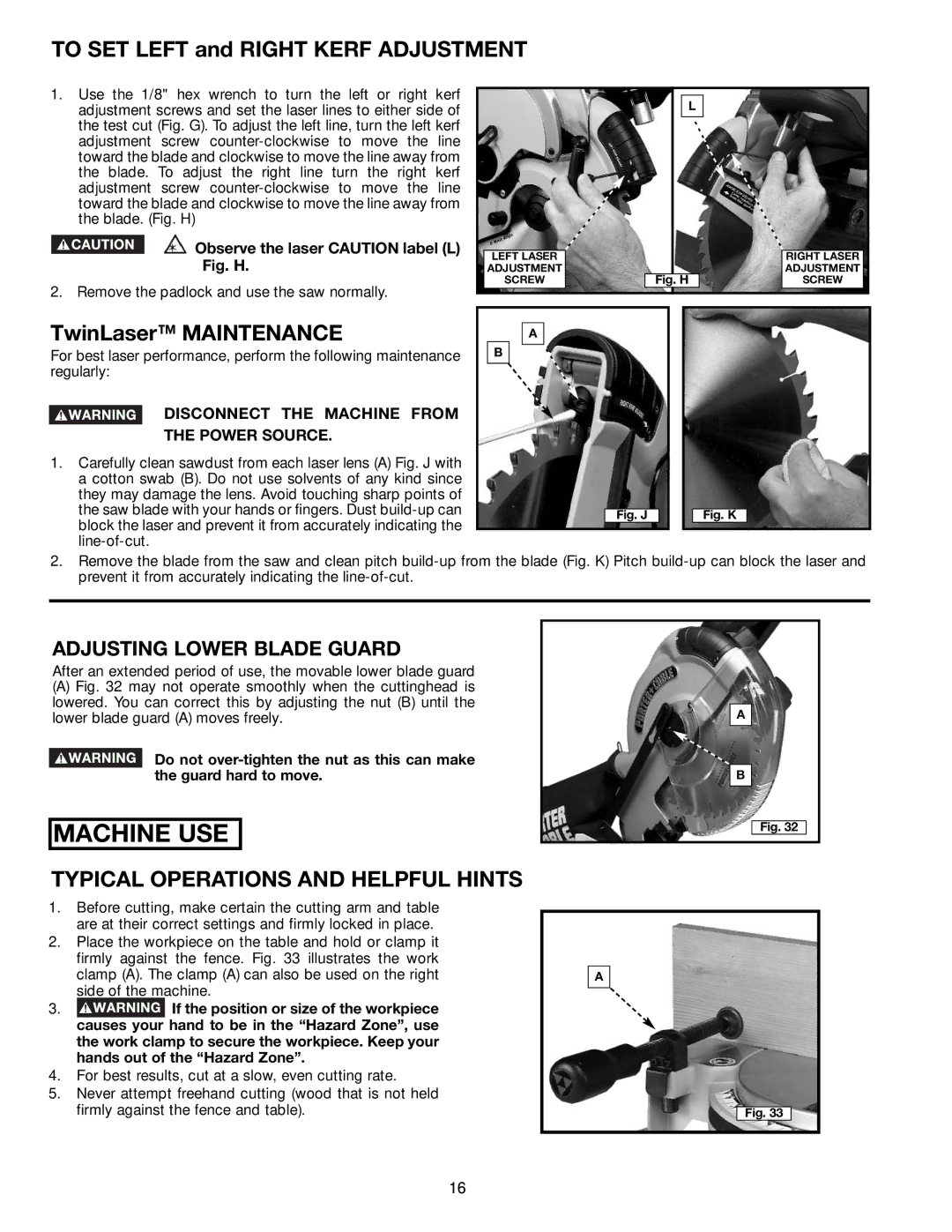
TO SET LEFT and RIGHT KERF ADJUSTMENT
1.Use the 1/8" hex wrench to turn the left or right kerf adjustment screws and set the laser lines to either side of the test cut (Fig. G). To adjust the left line, turn the left kerf adjustment screw
![]() Observe the laser CAUTION label (L)
Observe the laser CAUTION label (L)
Fig. H.
2. Remove the padlock and use the saw normally.
TwinLaser™ MAINTENANCE
For best laser performance, perform the following maintenance regularly:
DISCONNECT THE MACHINE FROM
THE POWER SOURCE.
1.Carefully clean sawdust from each laser lens (A) Fig. J with a cotton swab (B). Do not use solvents of any kind since they may damage the lens. Avoid touching sharp points of the saw blade with your hands or fingers. Dust
| L |
|
LEFT LASER |
| RIGHT LASER |
ADJUSTMENT | Fig. H | ADJUSTMENT |
SCREW | SCREW | |
A |
|
|
B |
|
|
Fig. J |
| Fig. K |
2.Remove the blade from the saw and clean pitch
ADJUSTING LOWER BLADE GUARD
After an extended period of use, the movable lower blade guard
(A)Fig. 32 may not operate smoothly when the cuttinghead is lowered. You can correct this by adjusting the nut (B) until the lower blade guard (A) moves freely.
Do not
MACHINE USE
TYPICAL OPERATIONS AND HELPFUL HINTS
1.Before cutting, make certain the cutting arm and table are at their correct settings and firmly locked in place.
2.Place the workpiece on the table and hold or clamp it firmly against the fence. Fig. 33 illustrates the work clamp (A). The clamp (A) can also be used on the right side of the machine.
3.![]() If the position or size of the workpiece causes your hand to be in the “Hazard Zone”, use the work clamp to secure the workpiece. Keep your hands out of the “Hazard Zone”.
If the position or size of the workpiece causes your hand to be in the “Hazard Zone”, use the work clamp to secure the workpiece. Keep your hands out of the “Hazard Zone”.
4.For best results, cut at a slow, even cutting rate.
5.Never attempt freehand cutting (wood that is not held firmly against the fence and table).
A
A
B
Fig. 32
Fig. 33
16
